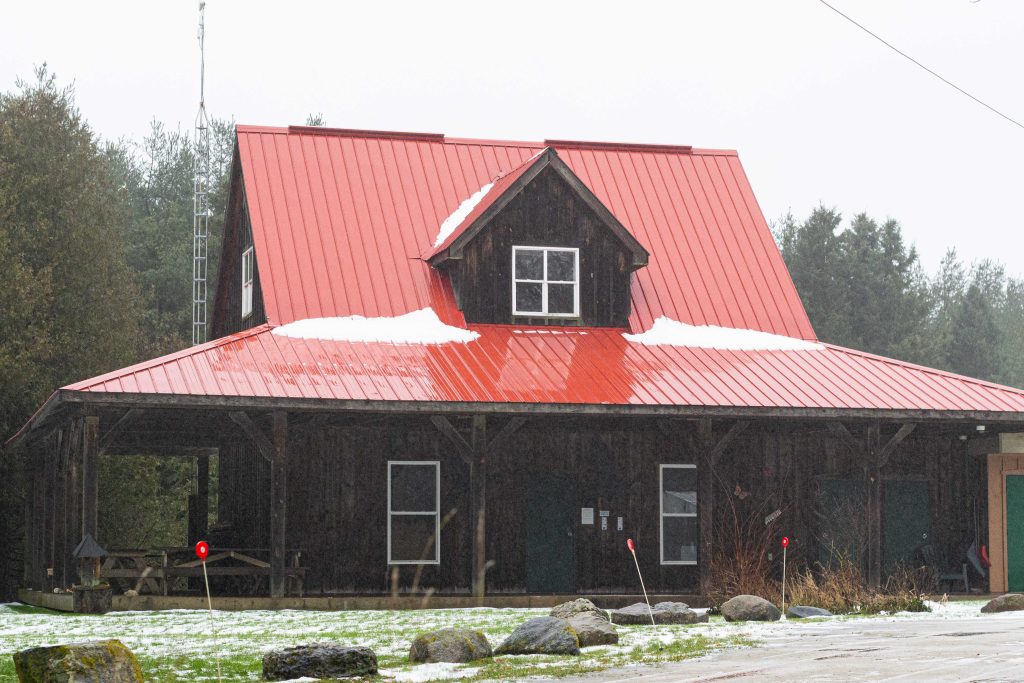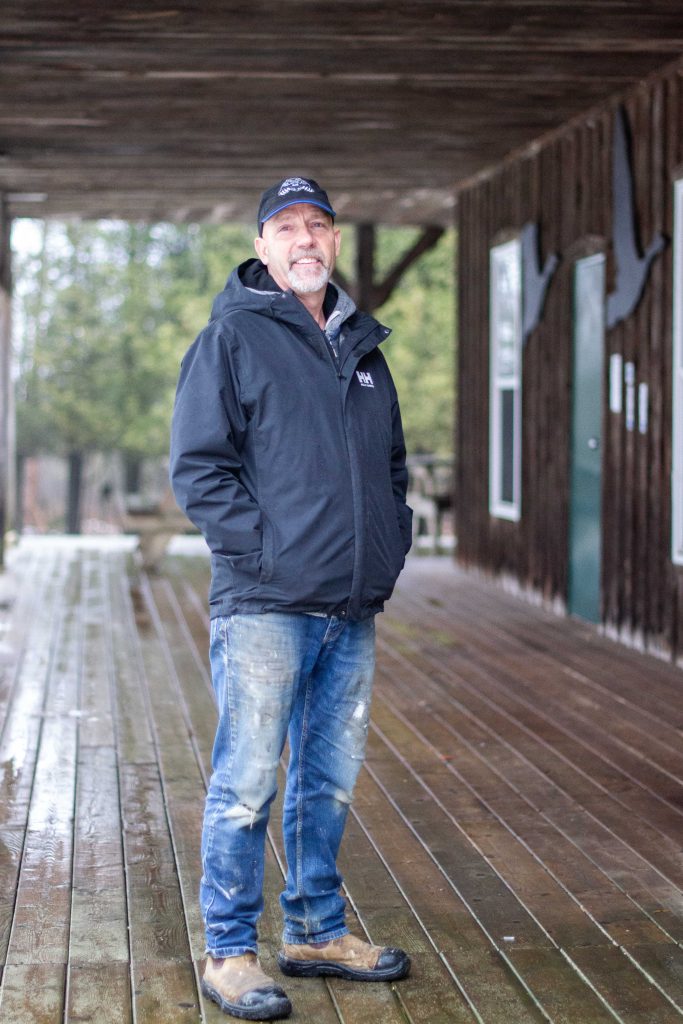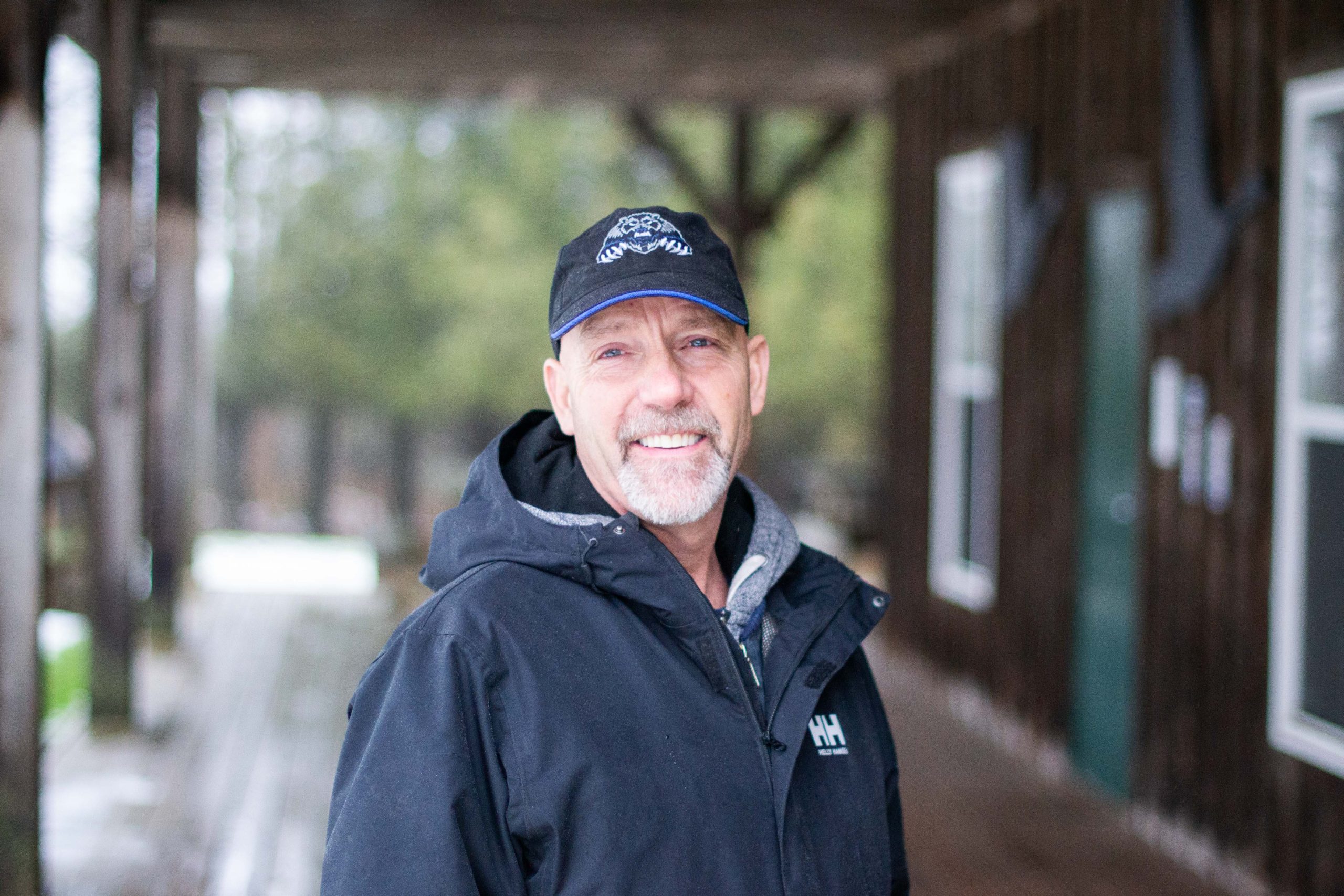MOUNT FOREST – Dave Griffiths was never the academic sort.
Which makes over two decades spent teaching for the Upper Grand District School Board (UGDSB) an ironic career choice.
Then again, Griffiths is an anomaly when it comes to the education system — and maybe an anomaly is exactly what the system needs.
Griffiths grew up in Belwood and attended Centre Wellington District High School.
He always wanted to be a teacher, but a prank in Grade 9 had an enduring outcome on Griffiths’ academic pursuits.
A pair of frog legs were placed into a “smart girl’s” pencil case and Griffiths zipped it up.
Once the legs were out of the bag and the shrieking had stopped, Griffiths’ trip to the principal’s office ended not only in admonishment for the prank, but he was also no longer able to take science classes.
“I kind of said … ‘I don’t really care,’” he recounted. “I was really bitter about it.”
School faded in the background, along with his grades, and his focus sharpened on the broad side of a nail as he swung a hammer into a career as a tradesman.
“I could have done better but I just became disenfranchised. School was not that important to me — farming and working was,” he said.
But a physical education teacher had made an impression on Griffiths during his senior years by letting him and other kids be themselves, rather than trying to fit them into boxes they didn’t belong.
“I thought, ‘I’m going to be that guy,’” Griffiths said. “I felt I never fit the box as a kid, as a student, and I wanted to be that teacher that made the difference; that would let these kids have an equal opportunity.”
An opportunity presented itself in the early ‘90s, when a Technological Education Multi-Session Program at Queens University allowed tradespeople to continue working while earning their bachelor or diploma to teach tech courses in high schools.
Griffiths taught in couple-year stints at schools in Guelph, Kitchener and Walkerton before moving his wife and four children to Mount Forest in 2001, when he began teaching at what was then Mount Forest High School (now Wellington Heights Secondary School).
“The students and the community are what kept me in Mount Forest,” Griffiths said.
Over a lengthy career as a professional educator — teaching students in his technology, co-operative learning, alternative education, and special education classes — Griffiths instilled lifelong knowledge and skills in students through what he calls “experiential learning.”
“The education system is designed for a certain type of student and if you don’t fit that box, you’re screwed,” he said. “I was fortunate to teach experiential learning where you’re not in that box.”
Co-op students would build two-car garages, barns, decks, re-shingle roofs and finish basements in the county over the six years Griffiths taught the course.
Before transitioning to blue school buses to transport students to job sites, Giffiths would use the family minivan.
“This one kid was pulling a rake out of the minivan and he was just cranking on it,” Griffiths recalled, laughing.
“I said, ‘What are you doing?’ and he says, ‘I’m trying to get this rake but it won’t come.’”
A four-inch gash ripped through a leather headrest by the rake was the final straw for his wife, Susan, who he’s sure to mention was the “backbone” for his success.
Randy Bye of H. Bye Construction in Mount Forest, stepped in and donated a blue school bus to Griffiths to cart students around and covered maintenance on the bus for the first year.
Bye also hired Griffiths’ students to build 15 bat houses to replace habitats displaced by a build. They went out with a wildlife specialist and installed the houses.
Students also built garden sheds and fencing for Pike Lake Golf Course.
“The whole golf course is surrounded by fences that my students and I built,” Griffiths said. “There was pride in what they accomplished.”
And the 1,100 square-foot educational building standing at Luther Marsh today — that’s also built by Griffiths’ students.

The Community Environment Leadership Program building standing at Luther Marsh – affectionately known as the “CELP house” – is an environmental education building built by Wellington Heights Secondary School students. (Photo by Jordan Snobelen)
It’s stories and experiences like those that Griffiths said wouldn’t have happened if not for community connections.
Later on, Griffiths’ team-taught the Community Environmental Leadership Program (CELP) with Anna Lee Carberry.
“We would go down to Luther Marsh and we would have 10 to 15 Grade 4 classes come out and the Grade 10 students would mentor the grade fours,” he said.
The younger students would “critter dip” with nets, temporality removing tadpoles and mosquito larvae along with other species of water-based critters to identify what they were seeing.
CELP students also went on “progressive camping” trips which became increasingly difficult with less resources over time.
Griffiths taught alternative education for students he said didn’t do well at school, either because they hated it (a group he understood well) or had been asked to leave school because of weapons or drug-related activity.
“We would have breakfast in the morning, they would learn culinary arts skills, how to prepare meals for themselves and then we would try and get them credits through [independent learning modules],” Griffiths said.
Alternative education students would deliver donations to those in the community who couldn’t afford food; Indigenous artists were brought in to work with the students, who painted an Indigenous art mural now hanging above the stairs in the school cafetorium; and they built wheelchair ramps for the elderly and painted apartments for those who were physically or mentally unable.
The final leg of his career was spent teaching special education students.
“As a person, it bothered me how the [Den LifeSkills kids] were always in their classroom; they weren’t out and about,” he said. “So, when I did get to teach them, I would take them out and about every opportunity I could.”
Kids would be provided with the dignity of making their own orders through talk-assist devices at Tim Hortons, and learn to function with relative independence.
During the pandemic, while the rest of the school was learning remotely from home, Griffiths and the kids were learning in-person each school day.
The students constructed holiday décor items and a colourful sign on the front lawn of the school thanking frontline workers during the pandemic.
Griffiths’ efforts helped the Den LifeSkills class to get recognized with a UGDSB Everyday Hero Award this year.
“I thought they deserved a lot of credit for having to get on the bus and come to school every day and be the only kids in school,” he said.
Despite Griffiths’ best efforts to adapt lessons to restrictions, experiential education didn’t lend itself well to a pandemic and Griffiths found himself butting up against barriers he couldn’t work with.
“The pandemic style was against my every philosophy and purpose of teaching, so I just refused,” he said. “The long-term effect on these kids will be huge.”

Mount Forest resident and former Upper Grand District School Board teacher Dave Griffiths stands for a photograph at an education building in Luther Marsh that Wellington Heights Secondary School students helped to build. (Photo by Jordan Snobelen)
Griffiths’ Nov. 19 departure and retirement brought a less-than-amicable end to 30 years of enriching the lives of children through hands-on teaching.
“It’s not healthy to dwell on it, so I move on,” he said, adding, “I’m trying to take the high road on the whole thing.”
As another pandemic year winds to an uncertain close, Griffiths’ story comes around to a familiar beginning.
He’s returned to his former craft as a carpenter, this time in a seemingly unstoppable housing market.
Griffiths will miss crossing paths with students in the hallways of Wellington Heights and establishing the connections he set out to make with youth early on in his career.
“I wasn’t as worried about curriculum as I was about making connections with the kids. To me, curriculum and academics are overrated – I really strongly feel, to be a successful teacher, you got to make a connection with the kids,” he said.
For Griffiths, “the kids always came first.”




